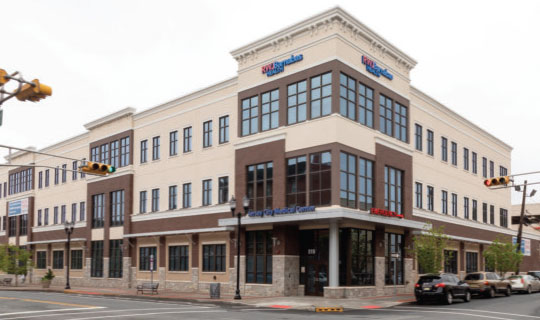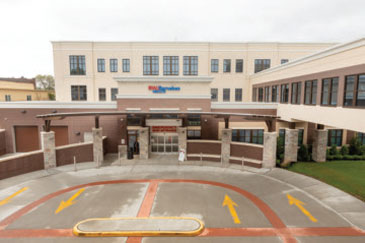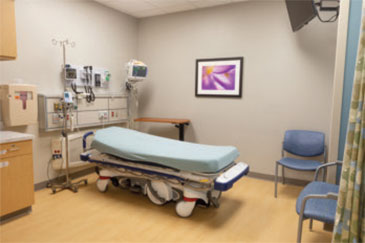
How to decide where to go to be treated for an illness or injury
Your bad back suddenly got worse. Your daughter fell in the backyard and can’t put weight on her ankle. Your father mentions he’s been having chest pain. All of those scenarios require professional medical care. But what kind of care is needed—an appointment with a primary care doctor, a visit to the urgent care center, or a trip to the Emergency Department (ED)? In general, trust your gut and err on the side of caution, advises Deven Unadkat, DO, FACEP, Emergency Department Chairman and Medical Director at Jersey City Medical Center.
“Essentially, if you have any condition that you feel needs an immediate response from a physician, that you think can potentially cause harm or cause significant health issues because of a delay, you want to go to an ED,” he says.These are the general differences between primary care, urgent care and
emergency care:
Primary care is “scheduled medical care, where the patient goes to see the physician for preventive care, for general well-being,” says Dr. Unadkat. Primary care providers can treat most common health problems and provide referrals to specialists as needed. Because of their scheduled visits, they may not be able to accommodate a patient on short notice.
Urgent care is provided at walk-in centers for issues that could be dealt with by a primary doctor, but require immediate care. “Urgent care is unscheduled, episodic care when you need a provider to make a diagnosis in a timely fashion. If you’re looking for a substitute for your primary care doctor because he or she is not available, the best choice would be an urgent care center,” says Dr. Unadkat. Urgent care centers often see patients seeking relief for symptoms such as congestion, coughs and upper-respiratory tract infections. “Those sorts of things, as well as things like superficial cuts and scrapes, or a sprained ankle, can be handled at urgent care,” says Dr. Unadkat. “But for anything more serious, you should come to an ED to be seen by a board certified emergency physician.”

An Emergency department is a center for the management of conditions that are potentially life-threatening. “They used to call such places ‘the
emergency room’ because there literally was one room, where there was one nurse and a doctor on call,” explains Dr. Unadkat. “Now, major EDs like Jersey City Medical Center are staffed with multiple board-certified emergency physicians, physician assistants, nurse practitioners and nurses who are trained in emergency care, and trained to take care of multiple complex and serious patients at one time.”
Common complaints presented in the ED include “chest pain, belly pain, vomiting, dehydration, diarrhea, vaginal bleeding, difficulty talking or walking, difficulty moving arms or legs, visual disturbances and traumatic conditions like falls, lacerations, head injury and broken bones,” explains Dr. Unadkat. A satellite ED, such as the one at the RWJBarnabas Health at Bayonne facility provided by Jersey City Medical Center, is located away from the primary site of a medical campus and can offer local residents a more convenient location and a shorter wait time.

It has virtually all the equipment of the main hospital ED and is fully staffed around the clock by board certified emergency physicians. In some cases, a trip to the ED may accomplish more than saving your life; it can put you on the path to ongoing treatment.
“Not only are we identifying and accurately treating emergent medical conditions, we’re also treating and discharging patients to specialists associated with our hospital system. This way, the patient’s condition is shared with outpatient specialists who have access to our records. It allows for more efficient communication and better overall care,” says Dr. Unadkat.
The cost question
The cost of health care often plays a role in patient decisions, even in emergency situations, Dr. Unadkat says. “If you are worried about bills, look at your insurance plan to understand what your deductibles and copays are for urgent care vs. emergency care,” he advises. “Generally, emergency care is more expensive because the level of care and specialty is higher. “But know this: In our Emergency Department, we will see anyone who comes in, regardless of their ability to pay,” says Dr. Unadkat. “We will make sure you are seen, 24/7, and that your emergent condition is addressed and stabilized. That’s what makes my job so rewarding.”
For more information about RWJBarnabas Health at Bayonne, call: 201.716.5700.